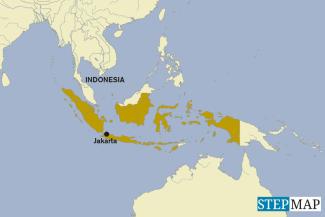Discrimination
Indonesia’s history of othering
 stepmap.de
stepmap.de
By law, this requirement had been abolished 13 years previously. The immigration office had simply not implemented the new law. Christiandy Sanjaya, the deputy governor, found the implicit racism frustrating and ordered the office to change its ways.
Unfortunately, Indonesian history is full of examples of discrimination. The issue is slow to fade away. During his authoritarian “New Order” regime (1967–1998), President Suharto
- shut down all Chinese schools,
- allowed regional authorities in Aceh and North Sumatra to expel ethnic Chinese,
- prohibited Chinese cultural expressions, including displays of Chinese writing and
- allowed only one Chinese language publication to continue publishing, though only under army control.
Ethnic Chinese people were forced to take Indonesian-sounding names. After Suharto fell in 1998, things began to change. In 2000, President Abdurrahman Wahid threw out the prohibitions on practicing Chinese culture. Nonetheless, ugly incidents of racism still pop up – for example during election campaigns involving ethnic Chinese candidates (see main story).
At least two generations of Indonesians have lived in a republic since independence in 1945. Ethnic divides that began during colonial times can no longer be blamed on the former rulers. Given that discrimination still occurs today, one would like to know how much more time will be needed before citizens of all ethnic backgrounds are accepted as full equals in Indonesia.